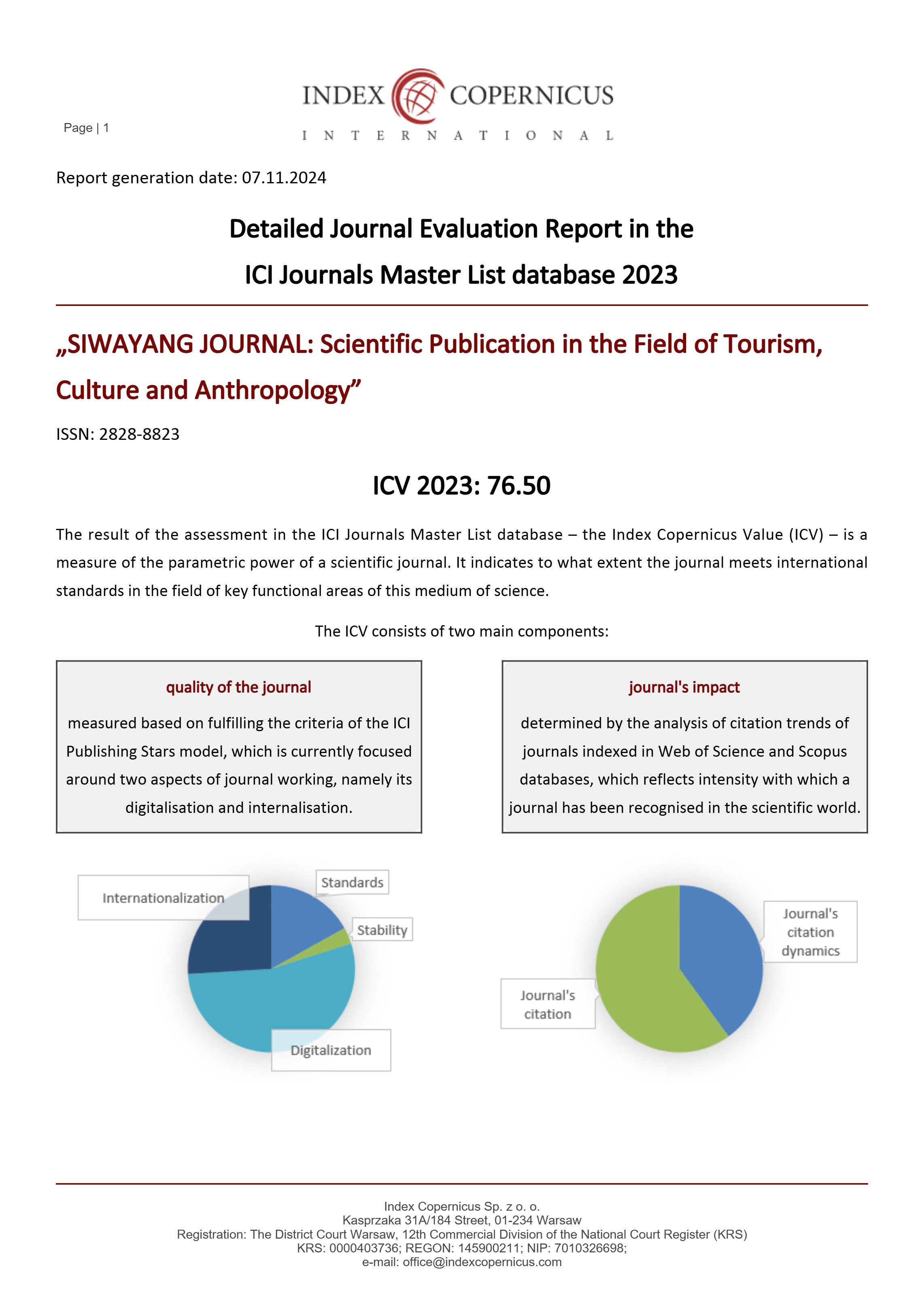PERAN SASTRA ARAB DALAM PENGEMBANGAN BUDAYA DAN AGAMA ISLAM: DARI MASA PRA-ISLAM HINGGA ERA MODERN
DOI:
https://doi.org/10.54443/siwayang.v3i1.2293Keywords:
Arabic Literature, Islamic Culture, Islamic IdentityAbstract
This article explores the role of Arabic literature in the development of Islamic culture and religion, from the pre-Islamic era to the modern age. Through the analysis of various Arabic literary works, this article reveals how Arabic literature has served as a crucial medium for disseminating Islamic teachings and shaping the religious identity of Muslims across the world. Arabic literature functions not only as an aesthetic expression but also as a tool to preserve and strengthen Islamic values in the face of modernity's challenges. The article also discusses the influence of Arabic literature in regions such as Andalusia, Persia, and Southeast Asia, and how this literature has adapted to social and cultural changes without losing its inherent Islamic identity.
Downloads
References
Abdurrahman, A. (2021). Sastra Arab dan Pengaruhnya terhadap Kebudayaan Islam. Penerbit Bina Ilmu.
Al-Jahiz. (2020). Kitab al-Hayawan. Terjemahan oleh M. Al-Farisi. Penerbit Al-Maktabah.
Al-Muqaffa', I. (2019). Sastra Arab pada Masa Klasik: Tinjauan Sejarah dan Budaya. Penerbit Al-Turath.
Brown, L. (Ed.). (2019). New Perspectives on Islamic Culture and Religion. Routledge.
Farabi, A. (2022). Filsafat dan Teologi dalam Sastra Arab. Penerbit Al-Kitab.
Ibn Sina. (2021). The Canon of Medicine and Its Influence on Islamic Thought. Terjemahan oleh J. Smith. Academic Press.
Jones, M. (2023, March 5). Sastra Arab dalam Konteks Modern. Literary Review. https://www.literaryreview.com/articles/sastra-arab-modern
Mahfouz, N. (2018). Kumpulan Cerita dan Novel. Penerbit Arab Literasi.
Smith, J. (2020). Understanding the Influence of the Qur'an on Arabic Literature. Cambridge University Press.
Van Den Berg, W. (2020). Pengaruh Hadis dalam Sastra Arab. Penerbit Ilmu Pengetahuan.
Downloads
Published
How to Cite
Issue
Section
License
Copyright (c) 2024 Niko Rifana

This work is licensed under a Creative Commons Attribution-NonCommercial 4.0 International License.











